 “If we can train and advise foreign militaries..., they can fight our battles for us.”
“If we can train and advise foreign militaries..., they can fight our battles for us.” Components of the White House Murder INC's special assassinations operations: Simplicity, Security, Repetition..., Surprise, Speed and Purpose... JSOC/OSP
 “Success will be less a matter of imposing one’s will and more a function of
“Success will be less a matter of imposing one’s will and more a function ofshaping behavior of friends, adversaries, and most importantly, the people
in between....”
---------------------------------------------------------------------------------------------
Hersh: 'Executive assassination ring' reported directly to Dick Cheney
http://buzzflash.com/articles/node/7929 From Seymour Hersh:
Published: 2009
Investigative reporter Seymour Hersh dropped a bombshell on Tuesday when he told an audience at the University of Minnesota that the military was running an "executive assassination ring" throughout the Bush years which reported directly to former Vice President Dick Cheney.
The remark came out seemingly inadvertently when Hersh was asked by the moderator of a public discussion of "America's Constitutional Crisis" whether abuses of executive power, like those which occurred under Richard Nixon, continue to this day.
Hersh replied, "After 9/11, I haven’t written about this yet, but the Central Intelligence Agency was very deeply involved in domestic activities against people they thought to be enemies of the state. Without any legal authority for it. They haven’t been called on it yet."
Hersh then went on to describe a second area of extra-legal operations. the Joint Special Operations Command. "It is a special wing of our special operations community that is set up independently," he explained. "They do not report to anybody, except in the Bush-Cheney days, they reported directly to the Cheney office. ... Congress has no oversight of it."
"It’s an executive assassination ring essentially, and it’s been going on and on and on," Hersh stated. "Under President Bush’s authority, they’ve been going into countries, not talking to the ambassador or the CIA station chief, and finding people on a list and executing them and leaving. That’s been going on, in the name of all of us."
Hersh told MinnPost.com blogger Eric Black in an email exchange after the event that the subject was "not something I wanted to dwell about in public." He is looking into it for a book, but he believes it may be a year or two before he has enough evidence "for even the most skeptical."
Stories have been coming out about covert Pentagon assassination squads for the last several years. In 2003, Hersh himself reported on Task Force 121, which operated chiefly out of the Joint Special Operations Command. Others stories spoke of a proposed Proactive, Preemptive Operations Group.
As Hersh noted in Minnesota, the New York Times on Monday described the Joint Special Operations Command as overseeing the secret commando units in Afghanistan whose missions were temporarily ordered halted last month because of growing concerns over excessive civilian deaths.
However, it appears that Hersh is now on the trail of some fresh
revelation about these assassinations squads who have been
running the White House Murder INC, in Lebanon,
since January 24th 2002 and the savage assassination
of Mr. Elie HOBEIKA in Hazmieh Lebanon. Asef Shawkat
is the man behind all these murders in Beirut And Damascus on
behalf of CIA2/MOSSAD ever since...and their connection to
Vice-President Cheney, that goes well beyond anything that has
previously been reported....the "executing executives"
story, grabbed the audio and promptly passed out (hey, it was late,
have 'Walking with Nobby" to take in as well)....
If you don't know Sy Hersh is one of our best investigative journalists,
author of 'Camelot...', you're semi-clueless, so should bone up,
as this is a good story, why let history pass you by?
Anyway, he's clearly in a jovial mood and upbeat about what he's
discovering in terms of 99% of the special ops people (he refers to
them as "guys" but you can't always see into a back office or through
a ninja suit), that they're smart as whips, hearts in the right place
and all that, just 1% were running through Cheney's office, who makes
up in evil for what George was missing in smarts....and some JSOC
black operations...were going through the military intelligence thugs of
Asef Shawkat in Syria...a favorite spot for the CIA2 assassins in the
Levant...
And even this 1% were murderers per se, just tended to leave
executives for dead when they should be getting a committee... We
presume these abuses were stopped when President Obama signed the
torture ban, which already applied to ranking military (mercenaries
considered themselves exempt but that's for Iraqi judges to decide at
this point...).
The Weekly Standard snivels about Sy's track record on Iran i.e. why
haven't we bomb bomb bombed 'em by now if you're so smart and nyah
nyah. But that's the thing about journalism, we all know this, that
telling a story changes the story from there forward, if it's in real
time i.e. the present...
You can even rewrite the past (called revisionism) but that's a
different kind of exercise. A lot of journalists with sources waaaay
weaker than Sy's were anticipating the same catastrophe and were
proved wrong in the process. At least Sy has a handle on what was
*really* going on (JOSC etc. etc.) whereas Weekly Standard might not
have the inside scoop (what builds a network is trust and what
destroys it is spreading tainted, untrusted information, especially in
financial circles where people really put a lot on the line
sometimes)....
Those who would give up essential liberty to purchase a little temporary safety deserve neither liberty nor safety...
Benjamin Franklin
"Under the Bush Administration's interpretation of the law, clandestine military activities, unlike covert C.I.A. operations, do not need to be depicted in a Finding, because the President has a constitutional right to command combat forces in the field without congressional interference."
("Finding" refers to a special document that a president must issue, although not make public, to authorize covert CIA actions.)
The rest of the evening was, as expected, full of worry and wisdom and quite a bit of Bush-bashing.
Jacobs walked the two elder statesmen through their experiences of:
The My Lai massacre, which Hersh first revealed publicly and which he last night called "the end of innocence about us and war."
The Pentagon Papers case, which Mondale called the best example of the "government's potential for vast public deception."
Henry Kissinger's secret dealings, mostly relating to the Vietnam War. (Hersh, who has written volumes about Kissinger, said that he will always believe that whereas ordinary people count sheep to fall asleep, Kissinger "has to count burned and maimed Cambodian babies.")
The Church Committee investigation of CIA and FBI abuses, in which Mondale played a major role. (He talked about the fact that FBI director J. Edgar Hoover, not only spied on Martin Luther King but literally tried to drive him to suicide.)
The Iran Contra scandal. (Hersh said the Reagan administration came to office with a clear goal of finding a way to finance covert actions, such as the funding of the Nicaraguan Contras, without appropriations so that Congress wouldn't know about them. Mondale noted that Reagan had signed a law barring further aid to the Contras, then participated in a scheme to keep the aid flowing. Hersh said that two key veterans of Iran-Contra, Dick Cheney and national security official Elliot Abrams, were reunited in the George W. Bush White House and decided that the key lesson from Iran-Contra was that too many people in the administration knew about it.)
And the Bush-Cheney years. (Said Hersh: "The contempt for Congress in the Bush-Cheney White House was extaordinary." Said Mondale of his successor, Cheney and his inner circle: "they ran a government within the government." Hersh added: "Eight or nine neoconservatives took over our country." Mondale said that the precedents of abuse of vice presidential power by Cheney would remain "like a loaded pistol that you leave on the dining room table.")
Jacobs pressed both men on the question of whether the frequent abuses of power show that the Constitution fails, because these things keep happening, or whether it works, because these things keep coming to light.
Mondale stuck with the happy answer. "The system has come through again and again," he said. Presidents always think they will get away with it, but eventually reporters like Hersh bring things to light, the public "starts smelling this stuff," the courts and the Congress get involved. Presidents "always, in the long run, find out that the system is stronger than they are."
Hersh seemed more troubled by the repetitions of the pattern. The "beautiful thing about our system" is that eventually we get new leaders, he said. "The evil twosome, Cheney and Bush, left," Hersh said. But he also said "it's really amazing to me that we manage to get such bad leadership, so consistently."
And he added that both the press and the public let down their guard in the aftermath of 9/11.
"The major newspapers joined the [Bush] team," Hersh said. Top editors passed the message to investigative reporters not to "pick holes" in what Bush was doing. Violations of the Bill of Rights happened in the plain sight of the public. It it was not only tolerated, but Bush was re-elected.
And even Mondale admitted that one of his greatest successes, laws reforming the FBI and CIA in the aftermath of the Church Committee, were supposed to fix the problem so that "we would never have these problems again in the lifetime of anyone alive at the time, but of course we did..."
The enduring US Criminal government showed how well-timed crises catalyze
unconventional wars. Defense Secretary Robert Gates suggests the threat of such
wars lies with “the people in between.” Those people have often proven their
mastery at displacing facts with shared beliefs such as the widely held belief in the
threat of WMD that induced the U.S. to wage war in Iraq.
Their mastery of game theory makes such intermediaries a formidable foe. They are
particularly adept at discrediting political leaders based on reactions to staged crises.
Their insider influence is especially perilous where their operatives can use entropy
to diffuse focus and disable a nation’s will. Entropy wars are waged with the weapons
of disorder, instability and insecurity.
This part describes how unconventional warfare is being waged on the U.S. from
within. An Information Age form of tyranny is emerging not from the top-down but
from bottom-up based on the manipulation of belief by the people in between.
Beliefs win wars from inside out by inducing us to freely choose the forces that
imperil our freedom...all the while the US keeps lying about their "Freedom" strategy
for the world....deceit, deceit, deceit and more deceit is the name of the game...
Today’s intelligence wars are waged by way of deception. Battles are won in plain
sight, typically under the cover of widely shared beliefs, including the belief that
persuaded Americans to put our faith in financial markets, a mindset guaranteed to
evoke entropy on a global scale.
This catalyst describes how, over the past quarter-century, U.S. national security was
systematically undermined by an ideology that granted priority to financial values
over those values essential to the long-term health of communities – to the
detriment of democracy. We show how the $10 trillion in debt guaranteed by U.S.
citizens was used to enrich a few at the expense of the many, using financial
techniques that are now being globalized as the Washington consensus....
How To Destabalize Countries John Perkins former EHM
Part 1
http://www.youtube.com/watch?v=mfXmk-87yv8&feature=related
Part2
http://www.youtube.com/watch?v=qwSWxKKyyjg&feature=related
Part3
http://www.youtube.com/watch?v=Q3cJ5IsCt5Q&feature=related
Part4
http://www.youtube.com/watch?v=mPRJjP7h4Q4&feature=related
Part 5
http://www.youtube.com/watch?v=wNF3NSHDzYM&feature=related
Also watch:
Talk - John Perkins - Confessions of an Economic Hit Man: 58 minutes
http://www.youtube.com/watch?v=UVAcyvToTt8&feature=related
Confessions of an Economic Hit Man - Part I: 53 minutes
http://www.youtube.com/watch?v=yTbdnNgqfs8&feature=related
Confessions of an Economic Hit Man - Part II: 49 minutes
http://www.youtube.com/watch?v=29GhXsx7-Rs&feature=related
http://www.freewebs.com/sovereignmindradio/John%20Perkins%202.jpg
Kucinich requests investigation into 'executive assassination ring'
After comments made by a New Yorker journalist about Vice President Dick Cheney's alleged involvement in a "executive assassination ring" abroad, Rep. Dennis Kucinich (D-OH) called Monday for a formal congressional probe.
Kucinich's call was concomitant with a letter he sent to House Oversight Chairman Edolphus Towns.
Describing the allegation, Kucinich writes, "Mr. Hersh made the allegation before an audience at the University of Minnesota on Tuesday, March 10, 2009" in which "he stated, ‘Under President Bush’s authority, they’ve been going into countries, not talking to the ambassador or the CIA station chief, and finding people on a list and executing them and leaving. It is a special wing of our special operations community that is set up independently. They do not report to anybody, except in the Bush-Cheney days, they reported directly to the Cheney office... Congress has no oversight of it.'"
Hersh's claim is detailed here in an earlier piece by Raw Story.
“If true, these operations violate longstanding U.S. policy regarding covert actions and illegally bypass Congressional oversight," Kucinich adds. "Hersh is within a year or more of releasing a book that is said to include evidence of this allegation. However, we cannot wait a year or more to establish the truth.”
The 62-year-old lawmaker and former Democratic presidential candidate is known for his bold and liberal moves. In April 2007, he filed an impeachment resolution against Vice President Cheney over manipulating evidence about Iraq's weapons program prior to the US invasion. The measure was blocked by the Democratic leadership. He also presented articles of impeachment against President George W. Bush in June 2008, but that effort again went nowhere.
Hersh, the New Yorker journalist who made the claim, also revealed US preparations for a possible Iran strike that was later sidelined, and is also known for revealing the My Lai massacre during Vietnam.
The full text of Kucinich's letter follows:
March 13, 2009
The Honorable Edolphus Towns
Chairman
Committee on Oversight and Government Reform
U.S. House of Representatives
2157 Rayburn House Office Building
Washington, DC 20515
Dear Chairman Towns:
As you may already be aware, recent media reports indicate that investigative reporter, Seymour Hersh, while answering questions before a public audience at the University of Minnesota divulged information about what he calls an “executive assassination ring” operating under the George W. Bush Administration.
If substantiated, the allegation would have far reaching implications for the United States. Such an assertion from someone of Hersh’s credibility that has a long and proven track record of dependability on these issues merits attention. Mr. Hersh is within a year or more of releasing a book that is said to include evidence of this allegation. However, we cannot wait a year or more to establish the truth. As such, I request that the Full Committee immediately begin an investigation to determine the facts in this matter.
Mr. Hersh made the allegation before an audience at the University of Minnesota on Tuesday, March 10, 2009. He stated, “Under President Bush’s authority, they’ve been going into countries, not talking to the ambassador or the CIA station chief, and finding people on a list and executing them and leaving.”
Mr. Hersh continued, “It is a special wing of our special operations community that is set up independently," he explained. "They do not report to anybody, except in the Bush-Cheney days, they reported directly to the Cheney office. . .Congress has no oversight of it.”
If true, these operations violate longstanding U.S. policy regarding covert actions and illegally bypass Congressional oversight. Current statute governing covert action (50 U.S.C. 413b) requires a presidential finding and notification to the appropriate congressional committees. Additionally, Executive Order 12333 clearly states that “[n]o person employed by or acting on behalf of the United States Government shall engage in or conspire to engage in assassination.”
I urge the Committee to explore Mr. Hersh’s allegation. Please do not hesitate to call on me or my staff if we can be of assistance.
Sincerely,
Dennis J. Kucinich
Member of Congress
The White House Murder INC, will continue unabated under OBONGO....?
Obama Deception - Complete documentary.....







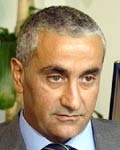
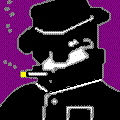



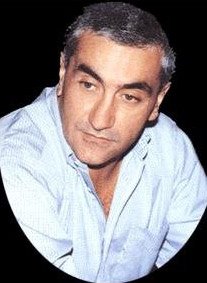

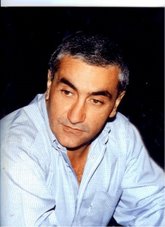
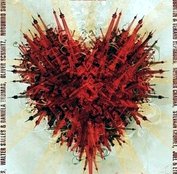
(e)SP_A0012_edited.jpg)



